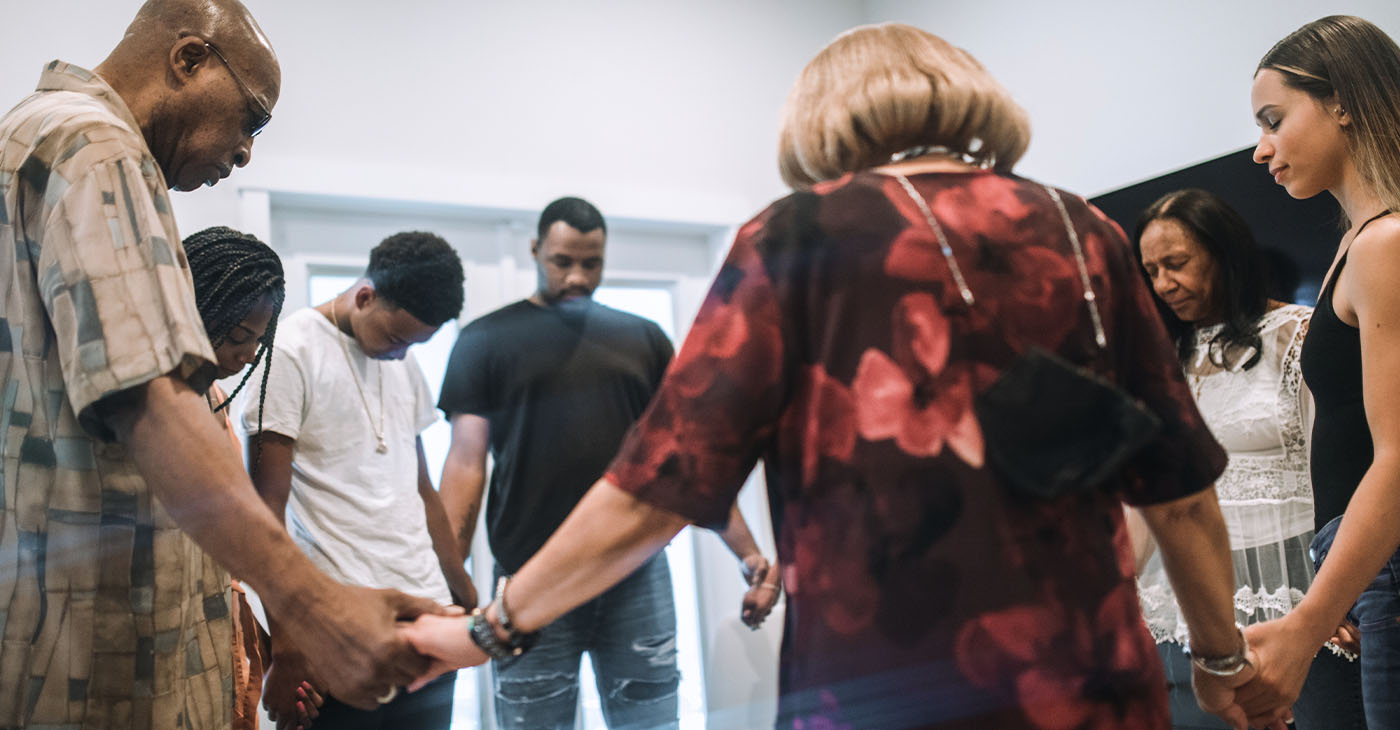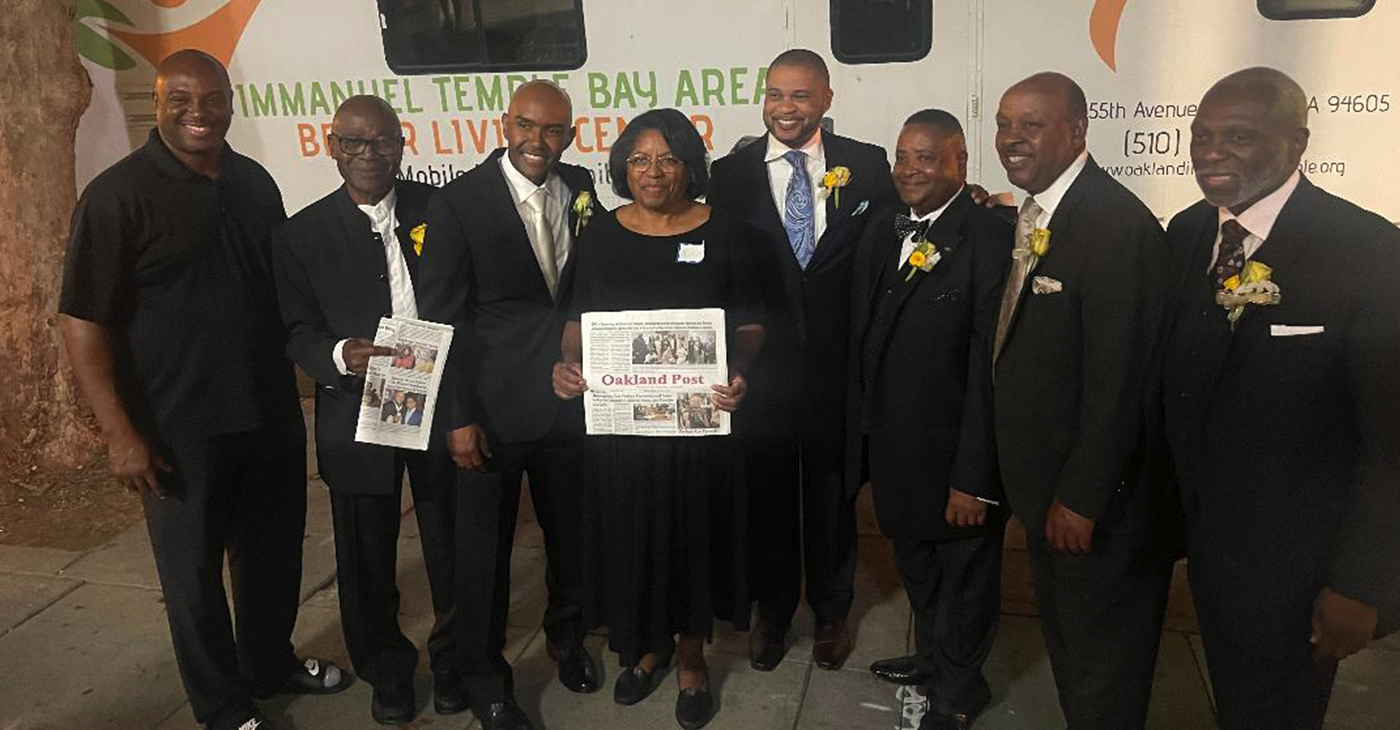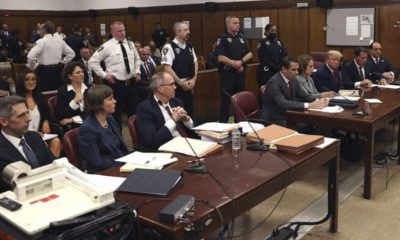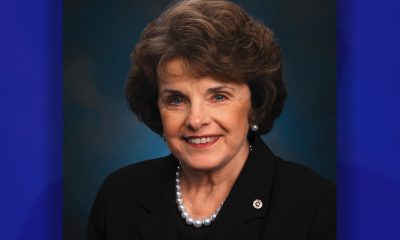Religion
Indiana, Arkansas Pass Revised Religious Objection Proposals

Arkansas Gov. Asa Hutchinson signs a reworked religious freedom bill into law after it passed in the House at the Arkansas state Capitol in Little Rock, Ark., Thursday, April 2, 2015. (AP Photo/Brian Chilson)
ANDREW DeMILLO, Associated Press
TOM DAVIES, Associated Press
LITTLE ROCK, Ark. (AP) — Lawmakers in Arkansas and Indiana passed legislation Thursday that they hoped would quiet the national uproar over new religious objections laws that opponents say are designed to offer a legal defense for anti-gay discrimination.
The Arkansas House voted 76-17 to adopt a revised bill after Republican Gov. Asa Hutchinson asked for changes in the wake of mounting criticism. Hutchinson signed it only moments after the vote, saying the new version recognizes that “we have a diverse workforce and a diverse culture.”
A parallel process played out at the Indiana Capitol as the House and Senate passed changes to a law signed last week by GOP Gov. Mike Pence, who quickly approved the revisions.
“Over the past week, this law has become a subject of great misunderstanding and controversy across our state and nation,” Pence said in a statement. “However we got here, we are where we are, and it is important that our state take action to address the concerns that have been raised and move forward.”
The new legislation marks the first time sexual orientation and gender identity have been mentioned in Indiana law.
The Arkansas measure is similar to a bill sent to the governor earlier this week, but Hutchinson said he wanted it revised to more closely mirror a 1993 federal law.
The Indiana amendment prohibits service providers from using the law as a legal defense for refusing to provide goods, services, facilities or accommodations. It also bars discrimination based on race, color, religion, ancestry, age, national origin, disability, sex, sexual orientation, gender identity or U.S. military service.
The measure exempts churches and affiliated schools, along with nonprofit religious organizations.
Business leaders, many of whom had opposed the law or canceled travel to the state because of it, called the amendment a good first step but said more work needs to be done. Gay-rights groups noted that Indiana’s civil-rights law still does not include LGBT people as a protected class.
Former Indianapolis Mayor Bart Peterson, now a senior vice president at drugmaker Eli Lilly, praised the changes but said the state’s image must still be mended.
“The healing needs to begin right now,” he said.
Democratic leaders said the amendment did not go far enough and repeated their calls to repeal the law.
“I want to hear somebody say we made a grave mistake, and we caused the state tremendous embarrassment that will take months, if not years, to repair,” House Minority Leader Scott Pelath said.
The lawmaker behind the original Arkansas proposal backed the changes, saying he believed the law would still protect religious beliefs.
“We’re going to allow a person to believe what they want to believe without the state coming in and burdening that unless they’ve got a good reason to do so,” Republican Rep. Bob Ballinger told the House Judiciary Committee.
Like Pence, Hutchinson faced pressure from the state’s largest employers, including retail giant Wal-Mart. Businesses said the bill would hurt Arkansas’ image. Hutchinson noted that his own son had signed a petition urging him to veto the bill.
After Hutchinson signed the compromise bill, the House voted to recall the original proposal from his desk. Conservative groups said they would have preferred Hutchinson sign the first bill, but they grudgingly backed the revamped measure.
“The bill that’s on the governor’s desk is the Rolls Royce of religious freedom bills. It is a very good bill,” said Jerry Cox, head of the Arkansas Family Council. “The bill that just passed … is a Cadillac.”
The revised Arkansas measure only addresses actions by the government, not by businesses or individuals. Supporters said that would prevent businesses from using it to deny services to individuals. Opponents said they believed the measure still needs explicit anti-discrimination language.
The original bill “gave us a black eye. This bill ices it,” said Rita Sklar, executive director of the American Civil Liberties Union of Arkansas. “We still need some Tylenol.”
The Human Rights Campaign, the nation’s largest lesbian, gay, bisexual and transgender rights group, called the new law an improvement but said it could still be used be used to discriminate based on sexual orientation.
The revised bill also faced opposition from Republicans frustrated over the governor’s request for changes to a proposal he had initially planned to sign.
“I, for one, do not appreciate someone hiding behind this body when they’re unwilling to take a stand one way or the other,” Republican Rep. Josh Miller of Heber Springs said.
Similar proposals have been introduced this year in more than a dozen states, patterned after the federal Religious Freedom Restoration Act of 1993, with some differences. Twenty-one states now have comparable laws on the books, including Indiana and Arkansas.
The backlash gave pause to lawmakers in other states considering their own religious freedom proposals.
A divisive bill in Georgia stalled Thursday as the end of the 2015 session approached. Atlanta-based Coca-Cola warned lawmakers against approving “any legislation that discriminates.”
In North Carolina, the House speaker said deliberations over a bill would be slowed to give lawmakers time to determine if the legislation would harm the state’s economy.
A proposed amendment to the Texas Constitution would prohibit the government or any other entity from imposing burdens on religious freedom, potentially opening the door for businesses to refuse to serve gay people on religious grounds.
___
Davies reported from Indianapolis.
___
Associated Press Writer Allen Reed in Little Rock, Arkansas, contributed to this report.
___
Follow Andrew DeMillo on Twitter at www.twitter.com/ademillo.
Copyright 2015 The Associated Press. All rights reserved. This material may not be published, broadcast, rewritten or redistributed.
#NNPA BlackPress
COMMENTARY: Prayer is Your Power
Terrible things happen to good people often. We live in an unjust world with people making decisions that are informed more by profit than people. We cannot take those principles into our relationship with God. We must believe that “… all things work together for good to them that love God, to them who are the called according to His purpose.”

Faithful Utterances
By Dr. Froswa Booker-Drew | Texas Metro News
This week, a friend informed me that she was following the ambulance to the hospital with her husband. Her husband was going through a major health crisis. She wasn’t the only one who reached out—a friend’s mother had unexplained pain and another friend contacted me about her friend’s son who was hospitalized with pneumonia. Each of them asked that I pray for them.
I consider it an honor to pray for others. Prayer is powerful and I love that I have a group of friends who I can turn to that I call the “prayer warriors” that when I send a text to lift up the concerns and issues of others before God, they go into battle mode.
Prayer is a weapon and I think many of us don’t understand its power until we need it. For many of us, it’s a routine, something that’s more about religion than it is about relationship. We have gotten prayer twisted as some exchange solely for stuff. God is not a celestial Santa Claus dropping off gifts. Prayer is an opportunity to go before to God sincerely in relationship. “And when you pray, you must not be like the hypocrites. For they love to stand and pray in the synagogues and at the street corners, that they may be seen by others.
Truly, I say to you, they have received their reward. But when you pray, go into your room and shut the door and pray to your Father who is in secret. And your Father who sees in secret will reward you. And when you pray, do not heap up empty phrases as the Gentiles do, for they think that they will be heard for their many words. Do not be like them, for your Father knows what you need before you ask Him.” (Matthew 6:5–8)
Prayer is about faith. It is believing that God hears us. “Let us then with confidence draw near to the throne of grace, that we may receive mercy and find grace to help in time of need.” (Hebrews 4:16) I realize that my prayers are even more powerful when I am in relationship with others seeking God: “For where two or three are gathered in my name, I am there among them” (Matthew 18:20). It’s dangerous when we see prayer as a way to manipulate God into doing what we want. There is nothing wrong with bringing your requests before God but it’s important to check our motivation and intention. It’s also important to know that just because God doesn’t answer our prayers in the way that we want does not mean that God doesn’t love us.
It doesn’t mean that God does not hear us. It does not negate the omnipotence or goodness of God, either. We must believe that God is able. “And without faith it is impossible to please God, because anyone who comes to him must believe that He exists and that He rewards those who earnestly seek him.” (Hebrews 11:6) It’s easy to blame God when things don’t go the way we want them to—”the rain falls on the just and the unjust” (Matthew 5:45).
Terrible things happen to good people often. We live in an unjust world with people making decisions that are informed more by profit than people. We cannot take those principles into our relationship with God. We must believe that “… all things work together for good to them that love God, to them who are the called according to His purpose.” (Romans 8:28) …. God is concerned with our hearts, with people and cares for us even when things don’t go the way we’d like. I can report that all of the individuals we prayed for had excellent results.
God is good! Yet, I realize that this isn’t always the case. Prayer is powerful. God wants us to have this daily form of communication. 1 John 5:14, tells us: “And this is the boldness we have in Him, that if we ask anything according to His will, He hears us.” Don’t use prayer just when you need something. Just as all relationships require consistent communication for growth and results, the same is even more important in our relationship with God. Prayer is a powerful partnership with God that can move mountains when we believe!
Dr. Froswa’ Booker-Drew is the host of the Tapestry Podcast and the author of three books for women. She is also the Vice President of Community Affairs for the State Fair of Texas. To learn more, visit drfroswa.com.
Black History
AFRICAN-ISH: The First Christmas Story
Both Joseph and Mary were of the lineage of David, Joseph descended from David’s son Solomon (and Bathsheba), and Mary extended from another son Nathan. Therefore, they were required to go to the little town of Bethlehem, in Judea and there, in a cattle shed Jesus was born. (Bethlehem is 70 miles south of Nazareth and 5 miles southwest of Jerusalem).

By Simon Burris
The narrative of Jesus’ birth and proof of his Hamitic (Black) African bloodline* began in the Old Testament in the book of Genesis chapter 10, in the Land of Ham, located in southwest Asia and Africa. Three most prominent Hamitic personalities: Abraham, Isaiah and David.
People and places of Hamitic origins are underlined.
(1) Abraham the patriarch was Babylonian (Ethnic Ethiopian). Gen. 11:31; (2) Isaiah a prophet lived 750 years before Christ, predicted the virgin birth was a nephew of Amaziah a Judahite (Canaanite) king; and (3) David the great king of Israel was a descendant of Abraham, also of Tamar and Rahab (Canaanites).
The (Hamitic) Genealogy of Jesus Christ: Matthew 1:1-17; Luke 3:23-34
The Birth of Jesus: (about 6-4 BC)
Mary the virgin mother of Jesus and her husband Joseph the “foster” father of Jesus, a carpenter, lived in Nazareth, a town in northern Palestine.
At this time Emperor Augustus of the Roman Empire decreed that a census would be taken. Everyone in his domain had to go to his or her hometown to register. He probably ordered Cyrenius ( Quirinius ) the Afro Roman governor of Syria / Judeadistrict to take charge and supervise the mandate.
Both Joseph and Mary were of the lineage of David, Joseph descended from David’s son Solomon (and Bathsheba), and Mary extended from another son Nathan. Therefore, they were required to go to the little town of Bethlehem, in Judea and there, in a cattle shed Jesus was born. (Bethlehem is 70 miles south of Nazareth and 5 miles southwest of Jerusalem).
A short time later shepherds from the countryside as well as Wise Men (Magi) from neighboring countries Arabia, Babylonia,and Persia traveled to the nativity site, paid homage and worshiped the infant-Savior.
Now Joseph was warned by the Lord in a dream that Herod the Edomite king of Judea was plotting the murder of the child, fled with his family to Egypt, returning to Nazareth after the death of Herod.
Jesus had siblings, brothers Joseph, Simon, Epistle writers James, Jude, and several sisters. The last mention of Joseph occurs in the Gospel of Luke when he and Mary take the 12-year-old Jesus to Jerusalem. Mary played a vital role all through Jesus’ life, from the day He was born till the time of the crucifixion.
Conclusion: The four Gospels: Matthew, Mark, Luke and John chronicled the full theme of Christ as the universal Savior. *Descendants of Ham’s sons Cush (Ethiopia), Mizraim (Egypt), Put (Libya) and Canaan (Ancient Palestine/Israel). Genesis 10: 6-20
Footnotes: Why is Christmas celebrated on December 25?
The ancient Romans celebrated the winter solstice on December 25 as the birthday of the SUN; the Babylonians and Persians -SON of the SUN. Some 300 plus years after Jesus’ earthly demise, Roman Emperor Constantine in 336 legalized this date as the birthday of the SON of GOD – JESUS the CHRIST! Originally: Christ’s Mass.
Eurocentric racism: Pope Julius II in 1508 commissioned Michelangelo, Raphael and other Renaissance artists and church scholars to portray and depict almost all major biblical characters as Europeans (Caucasians), save servants and slaves.
Activism
SDA Churches Join Outreach Efforts to Find Solutions to Upsurge of Violence
the Northern California Conference of Seventh Day Adventists (SDA) held their annual Convocation at Grand Avenue Seventh Day Adventist Church in Oakland. Seven hundred people came together in celebration and worship. The theme was “Embracing Change.”

By Post Staff
On Oct. 8, the Northern California Conference of Seventh Day Adventists (SDA) held their annual Convocation at Grand Avenue Seventh Day Adventist Church in Oakland. Seven hundred people came together in celebration and worship. The theme was “Embracing Change.” The guest speaker was Dr. Myron Edmonds, who pastors in Cleveland, Ohio. He spoke about how Christ wasn’t a traditionalist, and the work isn’t being done because some in the church don’t wish to change and they tend to demonize new ideas.
Throughout the day, the Mobile Medical Health Van operated by Immanuel Temple Seventh Day Adventist Church out of Oakland sat in front of the church and provided health screenings and community resource information to the general public. The Medical Van, which was gifted to the church by Pastor Raymond Lankford of Healthy Communities, has provided free health care services throughout Alameda County for the last few years. The prayer of Pastor Damon Washington of Immanuel Temple Church, who was ordained during the afternoon program, is for their health ministry to partner with the other providers like OPIC and Oakland Workforce Agencies and to combat the ongoing health disparities and violence within the city and beyond.
They have pledged to work with the Chaplains, the OPIC and the Formerly Incarcerated Giving Back, who want to make amends for the damages they have done to harm Oakland.
-

 Activism4 weeks ago
Activism4 weeks agoOakland Post: Week of March 20 – 26, 2024
-

 #NNPA BlackPress3 weeks ago
#NNPA BlackPress3 weeks agoCOMMENTARY: D.C. Crime Bill Fails to Address Root Causes of Violence and Incarceration
-

 #NNPA BlackPress3 weeks ago
#NNPA BlackPress3 weeks agoMayor, City Council President React to May 31 Closing of Birmingham-Southern College
-

 #NNPA BlackPress3 weeks ago
#NNPA BlackPress3 weeks agoCOMMENTARY: Lady Day and The Lights!
-

 #NNPA BlackPress3 weeks ago
#NNPA BlackPress3 weeks agoFrom Raids to Revelations: The Dark Turn in Sean ‘Diddy’ Combs’ Saga
-

 #NNPA BlackPress3 weeks ago
#NNPA BlackPress3 weeks agoBaltimore Key Bridge Catastrophe: A City’s Heartbreak and a Nation’s Alarm
-

 #NNPA BlackPress3 weeks ago
#NNPA BlackPress3 weeks agoBaltimore’s Key Bridge Struck by Ship, Collapses into Water
-

 Activism3 weeks ago
Activism3 weeks agoOakland Post: Week of March 27 – April 2, 2024



















































